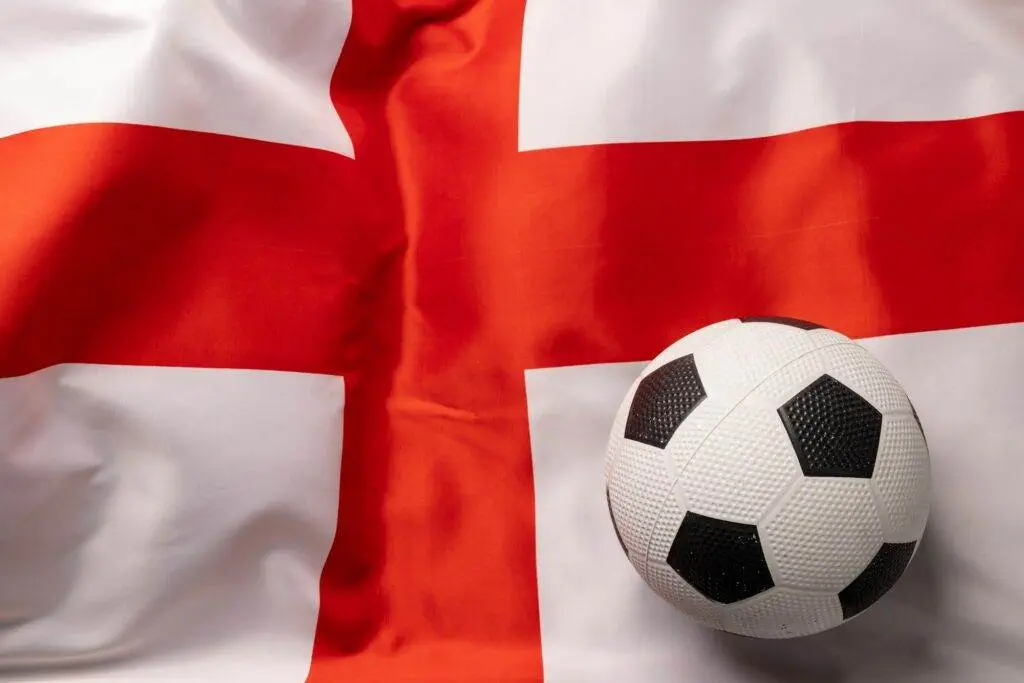The world’s attention shifts to the illustrious arena of football, where England’s expeditions in recent World Cups command animated debates among fans and experts. The Odyssey of the Three Lions narrates a saga of eager expectation, meticulous planning, and an eternal passion for the beautiful game. Such a chronicle beckons for a comprehensive football analysis that scrutinizes team interactions, strategic maneuvers, and displays that have enthralled and baffled audiences. Within this examination lies an endeavor to penetrate the core of recent tournaments; we aim to unravel England’s endeavors on arguably football’s most revered stage.
Assessing England’s Performance in Recent World Cups
England’s trajectory in world cups since the millennium has woven a rich pattern, punctuated by bursts of brilliance and tinged with episodes of unfulfilled potential. Facing the grandeur accompanying football’s most coveted tournament, squads adorned with England badges have consistently promised much. Analysis of their performances paints a picture oscillating between joy and heartache for those draped in St. George’s flag, from supporters to participants alike. Reflect on the 2002 campaign across South Korea and Japan: England advanced to quarter-final glory before bowing out at the hands of Brazil, who would lift the trophy. That year illuminated an English ensemble marrying veteran savvy with sprightly talent; however, they grappled incessantly with translating dominance into triumphs, a narrative all too familiar.
The passage to 2010 revealed seismic shifts, this time beneath African skies in South Africa. The stage was set amid voracious anticipation from legions back home fervently supporting their national team evaluation pointed towards success but ended abruptly against Germany during round-of-16 action; a punishing 4-1 outcome exposed tactical vulnerabilities while sparking vigorous debate over necessary reformations within England’s footballing infrastructure.
Rewind to Russia circa 2018 where yet another tale unfolds taking divergent paths from previous tournaments an English side emerged reinvigorated under Gareth Southgate as leader demonstrated strategic depth paired alongside psychological resilience which culminated famously through prevailing via penalties versus Colombia when it mattered most obliterating historical shortfalls associated specifically with such critical junctures previously considered an insurmountable weakness for this storied squad now united under Three Lions banner striving intrepidly forward amidst global sport’s elite echelon competing amongst strongest contenders whilst aspiring capture ultimate prize once more narrate pride passion inherent nation eternally quest perpetual excellence epitomised beautiful game renowned throughout centuries steadfast perennial journey march toward greatness unabated each four-year cycle unfolding anew testament enduring spirit embodied collective pursuit quintessential expression cultural identity encapsulated love shared pastime reverentially regarded followers worldwide england performance symbolises exemplifies essence competition pinnacle sporting achievement beckons embrace challenge eagerly anticipate forthcoming adventures held horizon laden opportunity awaits seize destiny enshrined chronicles esteemed annals history recounted posterity hallmark defining legacy bequeathed generations hence wonderment gaze fix firmly upon them embarks next voyage discovery chart course destined echoes eternity resonate hearts minds echo chambers memory long after final whistle sounds conclusion chapter yet written pages await inscription feats valour heroic exploits indelible mark left impression stamp significance era marked turn tide rebirth revival reignited flame glorious pursuits vie laurels bestowed victors true measure worth reckoned gauged countenance measured brace impact tale continue unfold immensity task hand dares dream ascendancy reclaim revered position apex collective ambition convergence optimise outcomes craft stories told down ages legends born moments captured canvas time
Analysing England’s Football Strategy in Global Tournaments
Examining England’s methodology in the revered sphere of international football has garnered considerable attention and critique. Evolution marks the strategic progression from a staunchly 4-4-2 alignment to dynamic, fluid formations reflecting contemporary football’s evolving landscape. This shift highlights an adaptable coaching philosophy at play. Central to this approach is an emphasis on developing domestic talent while capitalizing on the Premier League’s competitive advantages. The ambition has consistently been directed towards forging a squad that fuses technical finesse with formidable physicality.
England’s tactical blueprint now favors initiating attacks from defense while imposing intense pressure further upfield, a strategy particularly prominent during their 2018 World Cup campaign, wherein they exemplified these methods commendably. However, even as such progressive maneuvers come into play, there have been moments when England’s performance strategies invite scrutiny and debate over efficacy and planning.
Intricate interplays between singular skill and team synergy continue posing challenges for balance, especially against opponents who deploy stringent defensive schemes, circumstances both the 2010 and 2014 World Cups made all too clear by stifling English offensive efforts.
A more granular analysis reveals a recent penchant within English camps for versatile tactics; players are often seen assuming diverse responsibilities across matches, indicating significant tactical insight among coaches. Such adaptability also encompasses reactive changes in formation mid-contest, lending elements of surprise that can unsettle various adversaries. It remains an embedded aspect of current team evaluation discussions concerning national side approaches.
Evaluating the English Team’s Evolution Through Recent World Cups
The metamorphosis of England’s national football squad mirrors global shifts within the sport and its reflective self-improvement. A departure from a traditional reliance on resilience and tenacity, the side has embraced a strategy that values finesse with the ball and strategic insight. The transition is evident in the nurturing of young prospects, as demonstrated by triumphs at the youth level, notably the U-17 and U-20 World Cup victories. Such emphasis on early development has forged players proficient in technique bearing an international cachet from their formative years. Integrating these prodigies into the central team injects vibrancy and a fearless style into their play.
Advances in tactical sagacity mark another milestone for this evolving contingent; rigid strategies are now replaced by flexible tactics responsive to tournament plays fluctuating rhythms. England’s nuanced shift during the 2018 campaign to utilize three defenders supported by agile wing-backs signifies alignment with modern football stratagems indicative of team evaluation findings informed through robust football analysis.
However, progress begets heightened anticipation: each stride forward intensifies expectations placed upon them. The semi-final berth clinched at Russia’s World Cup stands not just as evidence of rising prominence but also alerts us to new benchmarks set forth for English prowess, a harbinger reminding all concerned what feats must henceforth be achieved consistently if they are indeed seeking recognition among footballing royalty an ambition where performances across world cups serve only as precursors towards loftier aspirations.
Insights into England’s Football Achievements and Challenges
The saga of England’s football, interlaced with a storied collection of triumphs, intersects the yet unconquered peaks of adversity. Such victories are epitomized by the glorious 1966 epoch resonating through contemporary exploits in the most prestigious global football contest. Nonetheless, history dutifully records each obstacle that has rigorously examined English football’s resilience. The emergence of the Premier League as an international colossus serves a dual purpose for England’s squad; it furnishes a crucible where homegrown abilities sharpen their skills amid some of this planet’s finest players but conversely presents an overwhelming magnetism drawing talent from afar, which often relegates burgeoning local stars to less time on the pitch consequently affecting their preparedness and vigor when summoned to serve at national level.
One commendable milestone lies in the recent championship landscape: St George’s Park stands proud as a testament to The Football Association’s unwavering pursuit for distinction, a nerve center fostering coaching sophistication and athletic evolution, and manifests proactive strides toward ameliorating historical impediments impeding domestic player growth. Despite these diverse hurdles, within circles enamored with England’s game, it engulfs unshakeable hopefulness; now remains to transform raw prowess into discernible conquests upon internationally revered turf. For England, performance assessment at the World Cup is paramount, and it is the ultimate gauge wherein seizing total glory shadows reveals fissures warranting focused redress.
A Comprehensive Review of England’s Recent World Cup Campaigns
The recent forays of England into World Cup tournaments encapsulate the essence of its football ethos. Each global contest unveils layers of English tenacity, a capacity to electrify an audience, and yet a propensity to buckle under intense anticipations. These ventures offer an expansive tableau to gauge England’s stature in international football dominance.
In Germany’s 2006 World Cup, feeling washed over became inevitable when England bowed out at the quarter-final stage. The presence of their golden generation did little to stave off what has become a routine letdown; penalty shootouts served once again as grim reapers snatching away dreams and ambitions. This episode extended the enduring saga: translating singular talent into collective triumph continues to elude them.
Subsequently, Brazil’s hosting of the 2014 tournament represented a nadir by many accounts for English football. This failure saw them not advancing past group play since nineteen fifty-eight laid everything on display, garnering calls for sweeping tactical reformations. A pivotal crossroad had been reached, demanding audacious choices and crystalline visions regarding future pathways within English pitch battles.
Come the 2018 championship meet, a harbinger emerged as England claimed its spot amongst semi-finalists after three decades worth of absence, an accomplishment bathed in fresh dynamism aligning team spirit synonymously with those cheering from afar, and while they didn’t reach ultimate victory the strides taken ignited optimism about possibly attaining top echelons amidst international contenders soon enough.
As voyages through football galaxies persist, so do narratives around performance evaluations in this ongoing traverse across competitions. Profound introspection is met equally by incremental advancements. All these elements birth stories reflecting relentless ambition tied inherently to chasing pinnacle moments within realms where nations converge vying for prestigious titles embodied wholly by Team England’s exploits upon vast fields where world cups unfold tales beyond mere games played.
The contemplation of England’s odyssey across preceding World Cups reveals a mosaic brimming with peaks and troughs, narrating an epic that transcends mere gameplay. The genuine followers have endured an emotional whirlwind, yet the squad’s progression is irrefutable. Meticulous scrutiny after every game has ignited debates on tactical nuances while highlighting a collective determination to surpass expectations. With each successive competition, the acquired wisdom coupled with displayed resilience forecasts an increasingly exhilarating episode in the annals of English football.






